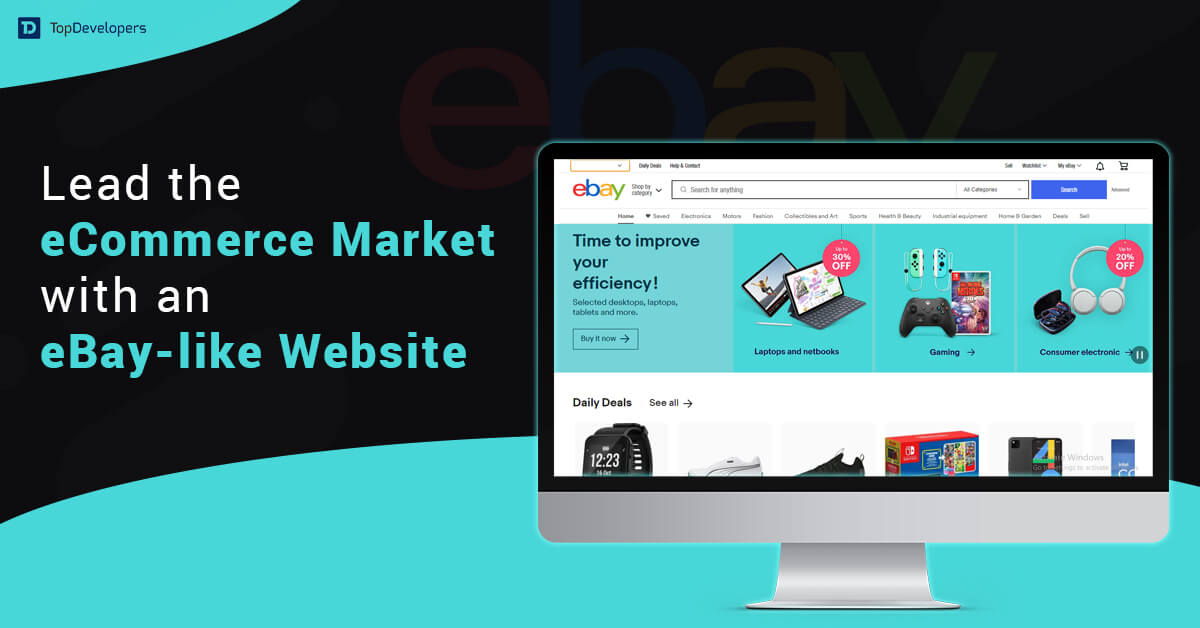
Summary: In general, most businesses worldwide have chosen to outsource their operations. Luckily, they have discovered the best all-inclusive answer for the same. This is your chance to outshine rivals who intend to outsource a web development firm for a forthcoming job! Still, while outsourcing, you should complete 360-degree research. Before agreeing with the web development company, you should review the top outsourcing questions this guide lists.
Clearly, companies trying for expansion must have a website. Any small-, mid-, and large-sized business must build a website or online application. Any web application or website primarily serves to facilitate interaction with users. Thus, one item that comes first on every company plan’s priorities is web development. In addition, outsourcing has become a viable option for projects related to web development. Outsourcing remains a questionable method for managing web development projects. For what? Companies are not aware of the importance of Web Development Outsourcing or the questions they should ask about it.
Given the low relevance of outsourcing, we have created a guide to help us choose the best web development company. Let’s probe the outsourcing firms honestly so that your business is not at risk.
Table of Contents
- Customers Google Everything
- Why Are We Asking You to Outsource?
- Hiring a Remote Web Development Team Is the Key to Success
- Top 20+ Questions to Ask Web Development Companies When Outsourcing
- Questions to ask yourself!
- Who is the target audience?
- Why do you need to build a website?
- What kind of budget do you have?
- Questions to Ask About Their Expertise
- What kind of industry experience do you hold?
- What is your experience with similar projects?
- Who were your clients?
- Can you share some references?
- Questions About Their Workflow
- What development methodology do you follow?
- What development stages do you generally follow?
- How do you plan to communicate with clients?
- Questions About Their Technical Expertise
- How will we communicate and manage the project?
- What technology stack will you use for our project (provide a rough idea)?
- What web development technologies do you specialize in?
- How do you ensure the website’s user-friendly?
- What tools do you prefer to use while developing a website or web application?
- Questions to ask about Security Measures
- How do you plan to handle the security and maintenance?
- Will you transfer complete ownership of the website?
- How do you ensure data security and compliance?
- Do you offer post-development support and maintenance?
- Questions Related to Cost
- What is your cost structure, and are there any hidden fees?
- How do you ensure cultural and operational fit with our team?
- Can you provide client testimonials or case studies?
- How do you price web development services?
- Wrapping Up
Customers Google Everything
Customers Google everything, and thus you can appreciate the value of outsourcing web development. Saying, “Let me first Google it,” means learning about the company, its offerings, pricing, and all-around business practices. You must therefore create an internet presence.
A Google survey indicates that 53% of consumers do some research before making a purchase. The same survey report notes several startling facts regarding consumer behavior:
- 87% of the respondents think it’s important to discover a decent deal before supporting a brand or company.
- 85% of consumers claim that their purchasing decision is much influenced by product information and images.
-
Company Background and Expertise
- List your past clients. Particularly for initiatives like mine, could you perhaps send case studies or references?
- Your areas of specialty and basic skills? Which project kind or sector do you shine in?
- Regarding the most recent technologies and frameworks pertinent to my project— React, Angular, AI integration, and cloud solutions—what is your experience with them?
-
Team and Process
- What standards guide your choice of web developers? How can one confirm their knowledge and abilities?
- Location of your development team; will they be committed to my project?
- In what ways may my business participate in the development process? Using what method of project management and communication?
-
Quality, Security, and Compliance
- Do you test and guarantee quality? Using what tools and procedures helps you to guarantee good standards?
- In line with GDPR or HIPAA, how can one guarantee the security of the web application?
- Could you send records for due diligence processes, including data security policies or certifications in security?
Why Are We Asking You to Outsource?
Whether to outsource or assemble an internal development team causes uncertainty among business owners. However, outsourcing is the greatest choice when you have several corporate goals to meet and a time limit running around your calendar!
Internal web development is more common than outside contracted work. Still, do not confuse it for the only one you have available. Here is a list of several disadvantages of internal web development. Consider it as more justification for selecting outsourcing of web development instead of internal resources!
-
Cost Savings:
Outsourcing lessens the requirement for recruiting, training, and keeping an in-house workforce, therefore lowering costs associated with salary, benefits, office space, and technology. For companies of all kinds, this is a cost-effective solution since you pay just for the work you need.
-
Access to Top Talent:
Outsourcing links you to a worldwide pool of professional designers, programmers, and project managers with specific understanding of the newest technologies-expertise that might not be locally available.
-
Faster Time-to-Market:
Speedier project completion and speedier launches are critical when consumers expect instantaneous access and rapid changes. External teams are experienced, follow set procedures, and can work across time zones.
-
Scalability and Flexibility:
Without the long-term dedication or overhead of full-time staff, outsourcing lets you readily scale your development resources up or down as your needs change.
-
Focus on Core Business:
Your internal team may focus on strategic aims and business growth instead of being mired in development specifics by allowing professionals to manage the technical components.
-
Quality and Reliability:
Established outsourcing partners guarantee your web presence satisfies the high expectations consumers anticipate when they explore and interact with your business online by bringing proven processes, quality assurance, and long-term support.
Hiring a Remote Web Development Team Is the Key to Success
Remote work comes in two flavors, outsourcing and out-staffing; did you know? Hiring a web development company to help you create the solution fit for your needs and demands is known as outsourcing. The hired firm handles the whole project! In out-staffing, on the other hand, you assign specialists to perform tasks under your direction. In this regard, you have a team of staff members equipped with the required knowledge and abilities to handle the web development project.
That leads us to the several forms of outsourcing depending on geography.
- Offshore outsourcing: Offshore outsourcing is hiring a crew from outside your nation in another time zone.
- Nearshore outsourcing: assembling a staff from abroad inside the same time zone.
- Onshore outsourcing: you call upon a staff from your own nation.
When you contract another company in the same region or country to handle web development or other initiatives.
Of the two, which is better? That relates just to your needs and objectives. But ask these key outsourcing questions to identify the finest web development business!
Top 20+ Questions to Ask Web Development Companies When Outsourcing
These are the top twenty-plus interview questions you should ask a web development business under outsourcing. The questions vary depending on several parameters, including experience, technical understanding, workflow, and so on, so helping you to ease your task.
Questions to ask yourself!
-
Who is the target audience?
Before beginning the web development project, clearly specify your target audience. Know and investigate who will use your good. Starting with their age, gender, location, and many more, know A to Z about them. Knowing your target demographic will help you to defend the design and feel of the website the outsourced business is supposed to create.
-
Why do you need to build a website?
Create a website for your business to solve any issues or hurdles you can identify. Here, responding “to build an online presence,” “everyone has a website,” or “to reach more customers” would be incorrect.
Get a thorough response to this question here.
-
What kind of budget do you have?
Looking to outsource a web development firm calls for defining the budget. Not sure if your budget is multi-billion dollars? Not an issue! Here we find an application for outsourcing!
Using an outsourced solution can help you to achieve the finest outcomes even without having many funds in hand!
Questions to Ask About Their Expertise
-
What kind of industry experience do you hold?
Having particular sector knowledge comparable to yours helps you to be sure the web development team is conversant with the most used words, legal requirements, etc. Other factors are important when selecting a team that fits industry-specific models, ideas, and technology use.
Thus, find out their experience if you wish your project to be successful.
-
What is your experience with similar projects?
Ensuring your partner has the required experience is one of the main worries when outsourcing web development. A company that has worked in your sector or managed similar initiatives will be more suited to meet your requirements. To gauge their knowledge, you can ask:
- Could you provide particular instances of online development initiatives like ours?
- What difficulties have you encountered establishing a project in our sector, and how did you resolve them?
This material will enable you to evaluate their capacity to satisfy your particular needs.
-
Who were your clients?
Ask the web development firm about their past customers to have some great insight about them. This is a great chance for you to grasp and discover the reason behind the caliber of the product the organization guarantees.
You know that the outsourced firm creates excellent web apps if it has dealt with esteemed clients.
-
Can you share some references?
One of the most important outsourcing web development questions to probe. If the company is ready to provide the references, even if you do not intend to use them, they are demonstrating their great credibility and desire to keep total openness.
Look for corporate testimonials on their social media or website. They will assist you to generate the outsourced company’s “impression.”
Questions About Their Workflow
-
What development methodology do you follow?
Crucially, you must know the development approach of your possible partner. This will help you to better understand how the team will handle adjustments, control the project schedule, and present advancement. Agile, which stresses constant communication and flexibility, and Waterfall, a more methodical, step-by-step approach, are two often used techniques. Important inquiries to ask include
- Which development methodology—Agile, Waterfall, Kanban, etc.—do you apply?
- How do you handle unplanned developments during the project?
Usually, businesses apply the agile approach. Should the outsourced company adopt the agile methodology, you could benefit from
- More autonomy
- Order
- Project methodologies with a result orientation
- More engaged throughout the process, from beginning to end
Knowing their method will help to guarantee it fits your preferred working style and required degree of flexibility.
-
What development stages do you generally follow?
To get outcomes, any web development team has to follow a set web development process path. Once more, it need not be inflexible! Still, a good step-wise strategy will help you avoid the additional expenses and work.
This represents the phases of development a web development company should go through:
Examining corporate needs and objectives
- Investigation of possible fixes
- Arranging the fix
- Recording the project’s scope
- Dealing with possible hazards before
- Plans and schedules the deliverables, therefore preparing the timeline.
-
How do you plan to communicate with clients?
“Communication is the key to success.” Consequently, regular customer contact is rather important if we are to keep the project in quality. Consequently, one should find out their preferred means of client communication.
You should thus anticipate from their response:
- Over voice calls, video conferences, letters, etc., we follow up with the clients.
- We keep an effective communication pattern by means of several instruments.
- We inform the clients often on the development of the project.
- Our project managers keep direct communication with the clients.
Questions About Their Technical Expertise
-
How will we communicate and manage the project?
Any outsourcing effort’s success depends on effective and constant communication. Find out who your point of contact (POC) will be, how often updates will be given, and what project management platforms or tools they would like to use—Slack, Zoom, or Jira. This will enable you to ascertain whether their approach to communicating fits yours. Issues to give thought to include:
- How often do you offer updates on projects?
- For real-time cooperation, which communication instruments do you rely on?
- In working with clients overseas, how do you manage time zone variations?
This guarantees that both sides agree and that the project operates without problems.
-
What technology stack will you use for our project (provide a rough idea)?
Without including the “technical” front, the list of top outsourcing questions is not whole. Therefore, you should find out from the outsourced web development business how they intend to handle the technology stack for your project if you have not settled upon it. Inquiring about this will guarantee that they are familiar with the most recent technological stack available on the market.
They will also offer the ideal response if they have worked on related initiatives!
-
What web development technologies do you specialize in?
The success of your project mostly relies on the technological stack applied. Make sure your outsourcing partner knows pertinent programming languages and frameworks, including React, Angular, Django, Node.js, Ruby on Rails, or others. Knowing their tech stack will help one to clearly determine whether they can satisfy the goals of your project, particularly in regard to complicated requirements like cloud-based development or artificial intelligence integration. Important inquiries to pose are
- Mostly using what programming languages and frameworks?
- How can you make sure your staff stays current with the newest technologies?
This will enable you to evaluate their technical proficiency and capacity for keeping current in a sector undergoing change.
-
How do you ensure the website’s user-friendly?
A website ought to be easy to use. Make sure the organization creates easily navigable deliverables so that the website runs across many devices, web browsers, screens, etc.
If the company mentions “compatibility testing,” you have identified the ideal fit even as they are responding to this query. Compatibility testing guarantees that, independent of the device, the website or web apps run without problems!
-
What tools do you prefer to use while developing a website or web application?
You agree that the progress should go without hiccups? For this reason, it is vital to be aware of the instruments the business would like to apply for the same. Apart from communication, the outsourced organization should give you a comprehensive list of instruments they apply for:
- Managing the productivity
- UI/UX design
- Analytics
- DevOps
- Testing
- Source Control
Questions to ask about Security Measures
-
How do you plan to handle the security and maintenance?
You should make sure the hosting, security, and maintenance are in place to guarantee your website runs as it should. Note the security certifications and hosting environment the organization uses.
The outsourced provider has to provide your maintenance needs as well! For what purpose? Because separate outsourcing of website maintenance may be more expensive! It will also expose your web application or website to “increased inefficiencies” threats!
Also Read: Why Outsourcing Website Maintenance Can Help Your Website Grow
-
Will you transfer complete ownership of the website?
The domain name ought to be registered under your business name. You cannot access the hosting account of the website and get the source code files without this either. Make sure the outsourced web development company claims no ownership of your artifacts or goods.
-
How do you ensure data security and compliance?
Never should security and regulatory compliance be taken as second nature. A respectable web development company will have strong processes in place to guard your information and follow pertinent laws such as HIPAA or GDPR. These are some pertinent questions to probe:
- How can we guarantee user data and our website’s security?
- In what ways do you follow GDPR, HIPAA, etc.? regulatory rules?
- What steps in cybersecurity do you have in place to stop leaks?
Making sure their security systems satisfy industry norms helps your company stay free from such hazards.
-
Do you offer post-development support and maintenance?
Bugging, updating, and maintenance are unavoidable after the website launches. You should find out whether your outsourcing partner will handle any problems that develop following launch and offer long-term support. Inquire about things like
- After the project is over, what assistance do you provide?
- How do you manage updates and bug repairs following the opening of a website?
- Do you present long-term maintenance schedules?
Constant support and maintenance guarantees that your platform remains current and effective, therefore preventing possible security problems or downtime.
Questions Related to Cost
-
What is your cost structure, and are there any hidden fees?
Knowing the pricing structure ahead of time helps one prevent surprises downstream. You should know how your outsourcing partner rates their offerings. Make sure that from the beginning all possible expenses are precisely stated. Inquire as follows:
- Could you offer the project’s comprehensive cost breakdown?
- Should the project’s scope shift, what happens? Exchanges will cost extra.
- Do you use a retainer, hourly charging, or a fixed-price approach?
Clarifying upfront web development costs will enable you to budget more wisely and prevent unstated expenses.
-
How do you ensure cultural and operational fit with our team?
Though they are sometimes disregarded, cultural fit and good cooperation are absolutely crucial for the success of the project. Your outsourcing provider of web development services ought to be able to coexist peacefully with your own staff. Inquire to evaluate this fit: Ask questions like
- How might your team be integrated with ours to guarantee seamless cooperation?
- How do you approach changes and comments during the project?
- How can you guarantee that your staff fits our corporate culture?
This guarantees flawless cooperation between the outsourcing staff and your own internal stakeholders.
-
Can you provide client testimonials or case studies?
At last, you should check the company’s history by consulting what previous customers have to say. Request case studies pertinent to your sector, client quotes, and references to get an understanding of their performance, job quality, and communication style. Important concerns consist of
- Could you offer quotes from past customers in our sector?
- Do case studies exist displaying your work on related projects?
- Could we perhaps get references from any of your former customers?
This lets you confirm the company’s reputation and evaluate whether they can live up to their claims.
-
How do you price web development services?
You should know the cost of building a website. Thus, remember not to overlook asking about service cost even as you have other inquiries about outsourcing web development. The service should include a price covering all:
- Payment schemes
- Paying techniques
- Front-end expenses
Examine their cost closely before deciding on final outsourcing.
Ultimate Guide: How to Outsource Web Development?
Wrapping Up
The choice is yours!
We expect you to have realized the value of outsourcing. If you are stuck, though, start looking for the top web development firms to outsource! Before you begin laying the basis of your website or web applications, ask questions of yourself and the other group of top outsourcing questions possible businesses!
FAQs
1. What are the most important questions to ask before outsourcing web development?
Before outsourcing, ask about the agency’s experience, development process, technology stack, communication practices, timelines, and how they handle revisions, security, and post-launch support.
2. How can I evaluate a web development company’s experience and credibility?
Ask to see their portfolio, client testimonials, and case studies. Verify if they’ve worked on similar projects and request references. Also, check platforms like Clutch or Upwork for reviews and ratings.
3. What should I include in a web development outsourcing contract?
Ensure your contract includes project scope, deliverables, milestones, payment terms, timelines, intellectual property rights, confidentiality clauses, and provisions for maintenance or support.
4. How do I ensure effective communication with an outsourced development team?
Ask about their preferred communication tools (e.g., Slack, Zoom, Jira), frequency of updates, project manager involvement, and time zone overlap. Clear communication protocols reduce misunderstandings.
5. What are the risks of outsourcing web development and how can I minimize them?
Common risks include miscommunication, scope creep, and quality issues. Minimize them by setting clear expectations, choosing a reputable team, using agile practices, and having a detailed contract in place.
 Avantika Shergil
| May 16, 2025
Avantika Shergil
| May 16, 2025
Avantika Shergil is a technology enthusiast and thought leader with deep expertise in software development and web technologies. With over 8 years of experience analyzing and evaluating cutting-edge digital solutions, Avantika has a knack for demystifying complex tech trends. Her insights into modern programming frameworks, system architecture, and web innovation have empowered businesses to make informed decisions in the ever-evolving tech landscape. Avantika is passionate about bridging the gap between technology and business strategy, helping businesses build customized software and website, and understand about different tools to leverage effectively for their ventures. Explore her work for a unique perspective on the future of digital innovation.







